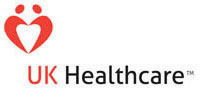As the nation gears up for National Bike Week 2013, leading health cash plan provider UK Healthcare offers discounts for policy holders on the cost of a brand new bike.
 As National Bike Week returns for another year, a leading health cash plan provider UK Healthcare, is reminding policy holders that they can save money on the cost of a brand new bike thanks to their plan.
As National Bike Week returns for another year, a leading health cash plan provider UK Healthcare, is reminding policy holders that they can save money on the cost of a brand new bike thanks to their plan.
National Bike Week 2013 runs from Saturday 15 June until Sunday 23 June, with cycling events taking place throughout the UK. From local authorities and community groups to charities and cycling groups, bike fans up and down the country will take part fun cycles, city rides, heritage cycles, bike races and much more. There is an event for everybody young and old, and all are encouraged to get involved with a local event and rediscover the love of cycling.
Whether commuting or enjoying a weekend trip, cycling is a fantastic way to get some exercise and enjoy some fresh air.
In addition to providing comprehensive personal and corporate health cash plans, UK Healthcare champion a healthy active lifestyle, and policy holders can take advantage of a range of special offers, which includes discounts off a selected range of brand new bikes from Halfords.
With personal and corporate health cash plans from UK Healthcare, policy holders can claim back the cash spent on a wide range of medical services from dental checkups and eye tests to hospital stays, health screenings and much more. Cover is available from as little as 28p per day and 100% cash back is available on a wide variety of treatments and prescriptions up to generous policy limits.
For more information about the many benefits of a personal or corporate health cash plan, or the special offers available to the policy holder, visit the official UK Healthcare website today.
Via EPR Network
More Healthcare press releases

